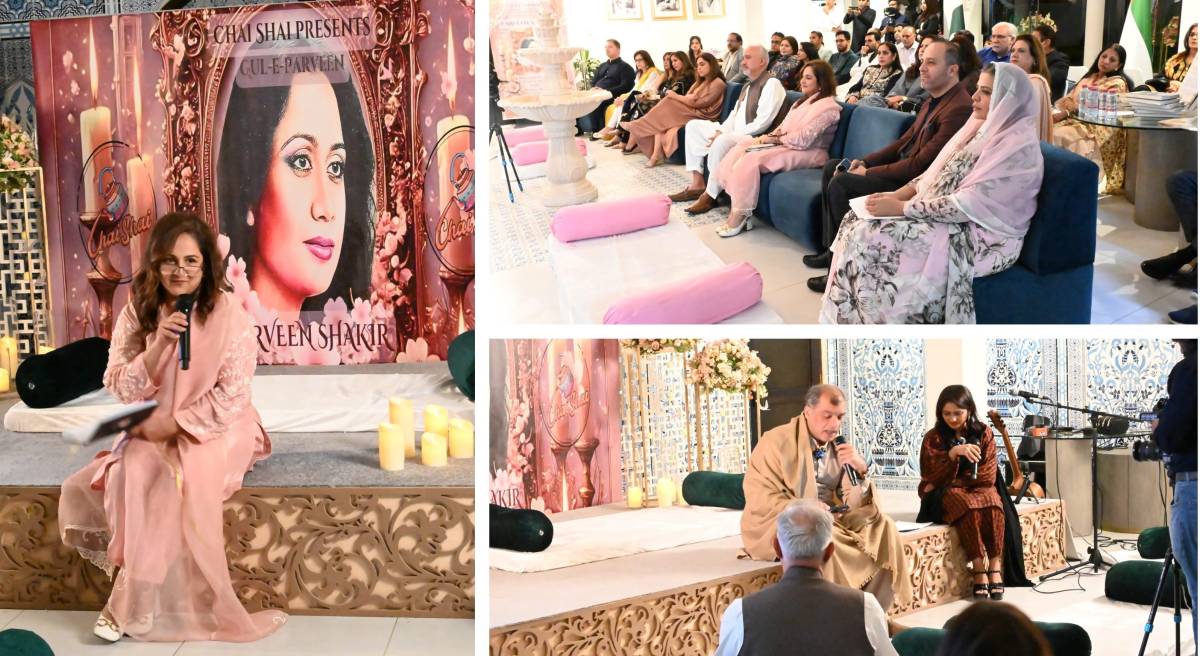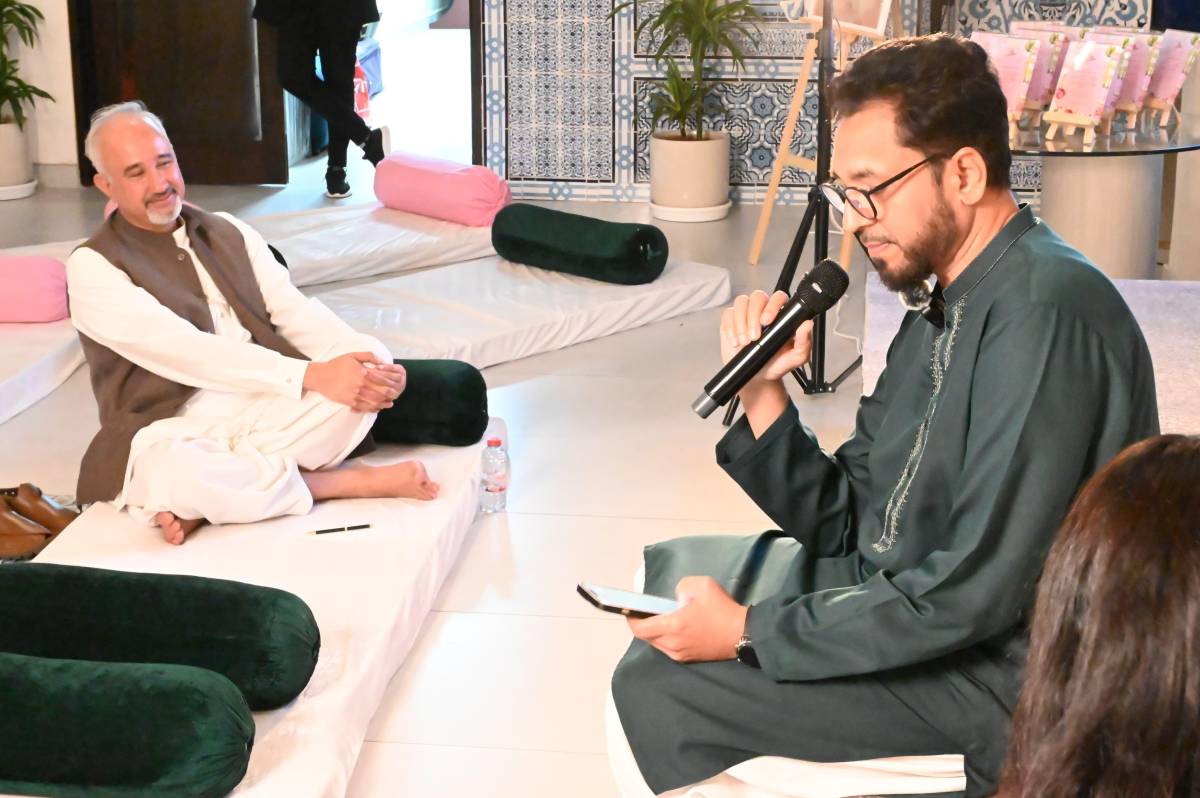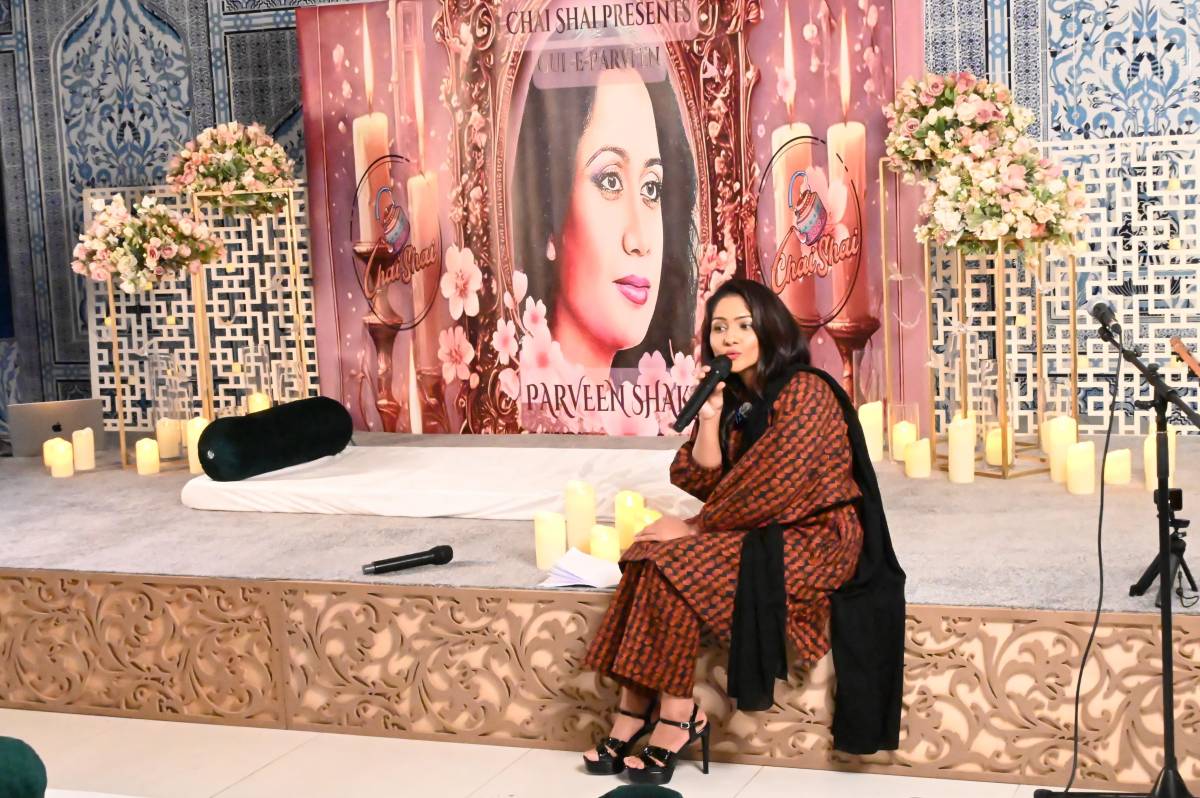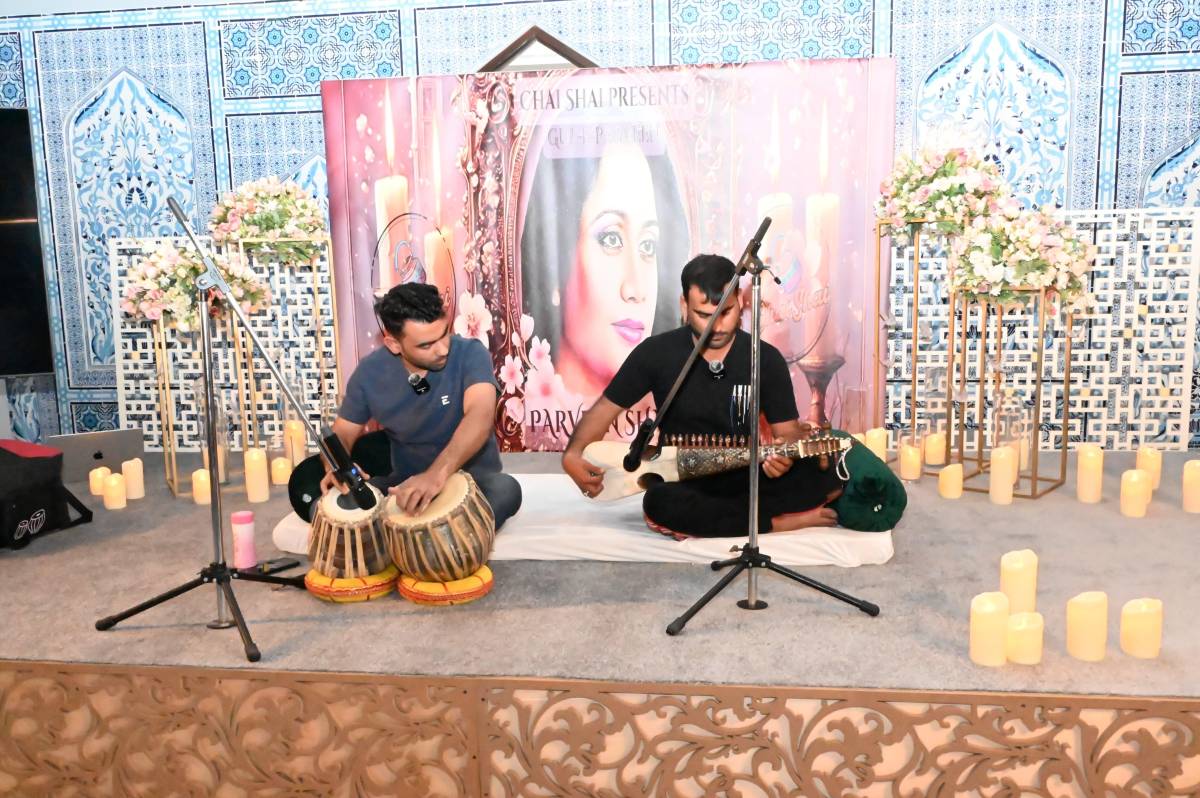Gul-e-Parveen: Pakistan embassy Abu Dhabi pays homage to Urdu poet Parveen Shakir
Ambassador Tirmizi joins distinguished guests to celebrate the late literary icon's legacy

The Pakistan Embassy in Abu Dhabi, in collaboration with Chai Shai – a restaurant and coffee shop in Ajman, presented an unforgettable evening titled Gul-e-Parveen.
This event paid tribute to one of Pakistan's most iconic poets, Parveen Shakir, and offered a captivating mix of poetry, music, and culinary delights, celebrating her timeless legacy. The gathering reflected the influence of Shakir's work on Pakistani culture and its enduring resonance globally.
Gul-e-Parveen not only honoured Parveen Shakir’s remarkable contribution to Urdu poetry but also showcased the deep connection between literature, music, and the vibrant flavours of Pakistan’s cuisine.
Gul-e-Parveen: A night of elegance
The Sunday’s event brought together a distinguished group of guests, including UAE-based Urdu poets and other prominent figures, who contributed to an evening rich in cultural expression.

Pakistan’s Ambassador in UAE, Faisal Niaz Tirmizi, who was in attendance, expressed his admiration for Shakir’s work and reflected on her legacy during the event. “I am delighted to be part of this evening that celebrates the life and work of Parveen Shakir, a poet whose words continue to resonate with people around the world,” remarked Ambassador Tirmizi.
He commended Chai Shai for organising such a meaningful celebration, noting how the combination of poetry, music, and food created a truly unforgettable experience for all.
Dr. Noor Al Saba, the owner of Chai Shai, also shared her appreciation for Shakir's poetry and the significance of the event. “We are proud to honour the extraordinary legacy of Parveen Shakir, whose poetry transcends time, culture, and borders,” Dr. Al Saba said. She praised the collaboration between the Pakistan Embassy and her team in bringing this event to life, underscoring the power of Shakir’s words to inspire generations.

The evening featured a soulful performance of Shakir’s poetry, with prominent poets from the UAE reading her verses, which continue to touch hearts around the world. These readings were interspersed with traditional Pakistani musical performances that added a layer of emotional depth to the tribute. The audience was also treated to a delightful assortment of Pakistani dishes, from biryani to sweets, further enhancing the evening's celebration of cultural heritage.
The event also featured an Urdu Mushaira, a traditional poetic gathering, in which UAE-based Pakistani poets took the stage, reciting their own works in tribute to Shakir. The Mushaira added a personal touch to the evening, as it allowed the attendees to witness the dynamic exchange of poetic expressions that have shaped the literary landscape of the UAE’s Pakistani community.

Parveen Shakir: A literary giant
Parveen Shakir's life and work continue to inspire those who encounter her poetry. Born on November 24, 1952, in Karachi, she grew up in a well-educated, progressive family that valued the power of knowledge and artistic expression. Shakir’s early interest in poetry became more pronounced as she matured, and by her teens, she had begun writing verses that would later shape her distinctive voice in Urdu literature. She completed her education in English literature and joined the Pakistan Civil Services in the 1970s, where she worked for over two decades in the Customs Department. Despite her demanding career, Shakir always found time to nurture her passion for poetry, which would eventually redefine modern Urdu verse.
Thread 1/2
— Pakistan Customs Service (@Pak_Customs) July 22, 2020
Perveen Shakir 1976–1994 (Pride of Customs)
She cleared CSS in 1982 by securing 2nd position in Pakistan and joined Pakistan Customs. She was declared as the best probationary officer at CSA. Among her most famous books of poetry, are Khushboo in 1976 and Sard-Bag pic.twitter.com/CwARaQgksG
Her first poetry collection, Khushbu (1976), was a breakthrough work, capturing the emotional depth of love, loss, and the complexities of life in a way that was both personal and universal. Shakir’s poems brought fresh perspectives to Urdu literature, blending romance, feminism, and social commentary in a field that had long been dominated by male poets. Her works resonated with readers, particularly women, who found a voice in her exploration of the feminine experience in society.
Following the success of Khushbu, Shakir continued to release collections that demonstrated her literary growth and versatility. Sitaron Se Aage (1981), Inkar (1990), and Kahaniyon Ki Aanch (1994) showcased her poetic range, with themes that explored not only the complexities of love but also the social injustices and gender inequalities prevalent in Pakistan. Her poetry was marked by its beautiful use of metaphors, where simplicity met profound meaning.
Tragically, Parveen Shakir’s life was cut short in a car accident on December 26, 2004, at the age of 52. The accident occurred while she was travelling from Islamabad to Rawalpindi, and the collision with a bus resulted in her untimely death. The news of her passing left the literary world in mourning, and many fans and admirers struggled to comprehend the loss of such a brilliant poet.
Parveen Shakir remains one of the most celebrated poets in Pakistan’s literary history, and her legacy lives on through her words.